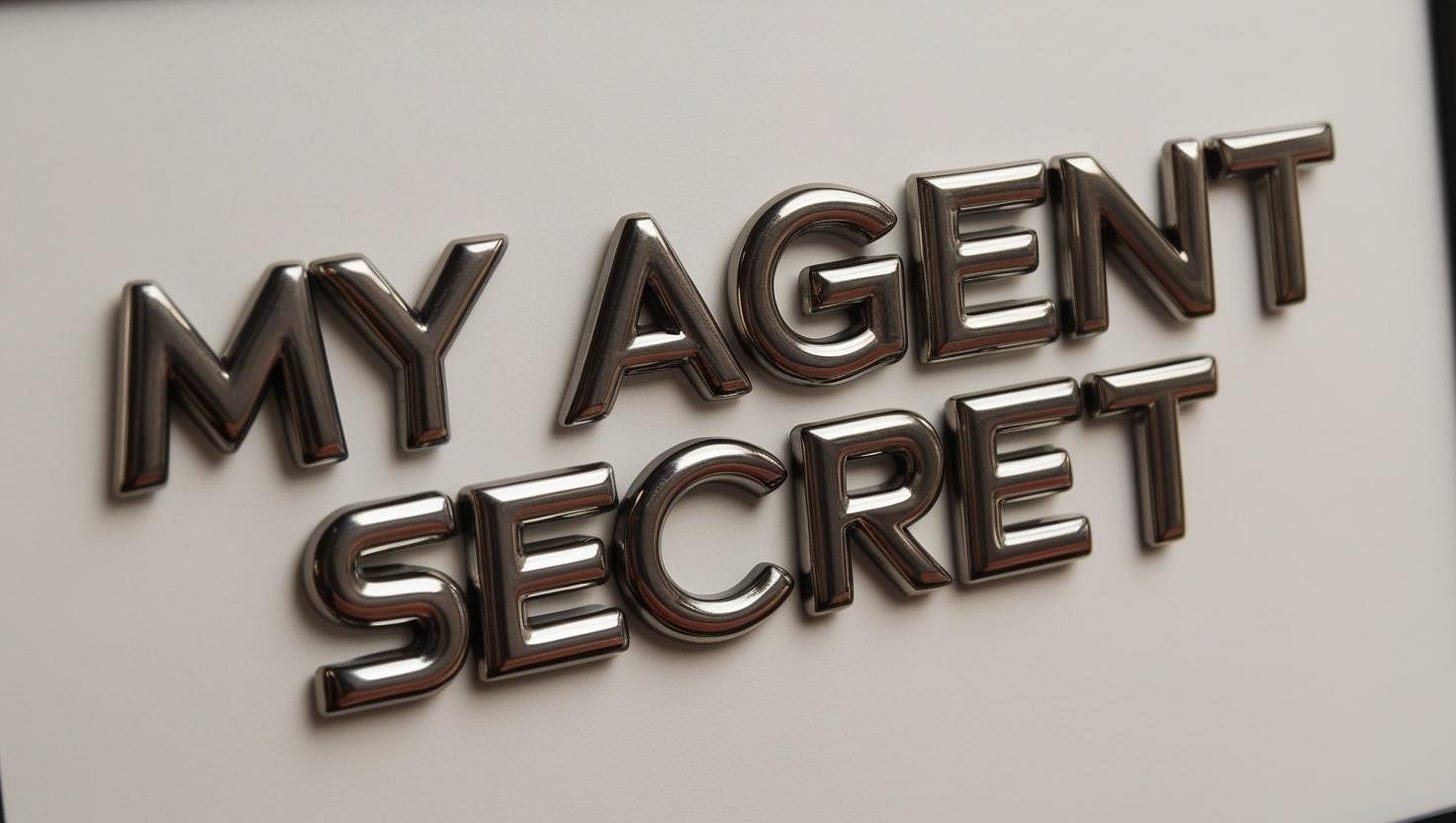CONSIDER YOUR GENRE
Mean Girls Style 💅
Good afternoon, Ivan speaking.
I’m writing to aspiring writers today.
This post has one ask and one promise. The ask is that you specify the genre of book(s) you’re writing. The promise is that I will write posts with tailored solutions for writers of your genre.
Choose which section of my newsletter you subscribe to here:
https://myagentsecret.substack.com/account
Stop being prissy about it. Own your author type. Channel the early scene in Mean Girls when the camera surveys the canteen of North Shore High School at lunchtime. We see the school kids self-dividing in groups around a table. We’re introduced to “Freshmen, Jocks, Asian Nerds, Cool Asians, Unfriendly Black Hotties, Girls Who Eat Their Feelings, Girls Who Don’t Eat Anything, Desperate Wannabes, Burn Outs, Sexually Active Band Geeks”…ok, bit dated. But let’s keep going, we’ve got work to do. And now, the Greatest People You Will Ever Meet: Agents.
Warning, we talk business—do you see that as a chore?
Grow up.
.
Grown up yet?
OK great let’s move on.
Ask yourself are you writing
Literary Fiction? (scroll down for discussion)
Or if you’re writing non-fiction is it
Narrative Non-fiction? (scroll down for discussion)
These are the categories we will begin to use as an agency to process your submissions. I will be using the same categories to create tailored content for you.
Fiction writers, you may be wondering what the difference is between
The distance between any two genres is not a precision measurement. Often it’s obvious. Often it’s not. You try to consider it objectively but often it’s subjective judgement. If you can defend your category choice with sound reasoning, you’ve likely made the right call. In short many novels are a blend of Literary and Genre fiction. Just decide which one is dominant. And if it’s both equally then it’s Upmarket (otherwise known as Book Club) fiction.
Genre Fiction (Romance, Western, Action Thriller, Psychological Thriller, Fantasy etc.) is the story-led stuff where the reader spins the pages towards a resolution and the characters are acting primarily in service to that. The author’s writing gift immerses you in the rapidly moving current of their story, rushing you through scenes and dramas. There are codes and conventions.
In Literary Fiction the characters (and the author) often insist on their awkward individuality, messing up any clear narrative or generic direction. You bump into the writing because the author’s style is ‘high’ and different. Perhaps you get lost in the text but you don’t mind—or you love it. You endure because you sense something special is coming down the line.
In terms of readership and your book, it’s important to grasp the in-between genre of Upmarket Fiction often labelled Reading Group Fiction.
It’s a huge book publishing category. Finding a readership for Upmarket Fiction is done a little differently. These novels give you a page-turning story and raise questions about our world. They contain ideas that tend to provoke discussion (hence the label “Book Club Fiction”). Whilst pure Genre Fiction is crafted to be read in a tear, Upmarket/Reading Group Fiction offers characters and topics which invite some thought, perhaps discussion with friends, perhaps over a glass of wine, perhaps within a reading group. Literary Fiction can have this effect too. But often the reader wants to relish it, the confusion and delight, alone.
Or is it Non-Fiction you’re writing?
If so is it
Bit of both is okay but which genre dominates?
Subject-led non-fiction is normally obvious. You’re an economist, chef, historian, biographer, scientist, anthropologist, yoga teacher, political analyst, journalist with a story, activist, grief counsellor, entrepreneur, art critc, traveller lecturer on literature, doctor, lawyer or dog trainer.
You have knowledge, you bring expertise, you have a fresh perspective, and you want to share it.
Narrative non-fiction isn’t complex either, most of the time.
You are telling the story of a life, or your life, or part of a life. That’s autobiography, biography or memoir.
For example I had an author who spent months seriously ill in hospital. She might have been dying. She wasn’t sure. As she lay there, often in agony, at moments she sensed herself sliding towards death. She thought about books. It was either them or death. No contest. She reflected on her favourite writers. Why did she relish reading James Baldwin? How can Virginia Woolf say we have no language for pain? She critiques Freud, Lacan and Kristeva. Now, has she written Narrative Non-Fiction or Subject-Led Non-Fiction? It’s not obvious but I considered it Narrative Non-Fiction because the autobiographical story was what gave her a framing to talk about literature. Her subject was within the narrative.
Now it’s 2.14am. I’m in my mother’s house in Dublin finishing this post for our Substack. I’m tired but pleased to have finished the task. This is a tiny bit of narrative within a post about book publishing which makes this subject-led non-fiction with bit of life peeping out.
Ivan




I'm heavily in genre (horror) with a touch of literary because I want characters to have real journeys and not everything sprints at full speed all the time.
Thank you Ivan for shining a torch in the maze of things I need to know, and have ready, before seeking to get published.